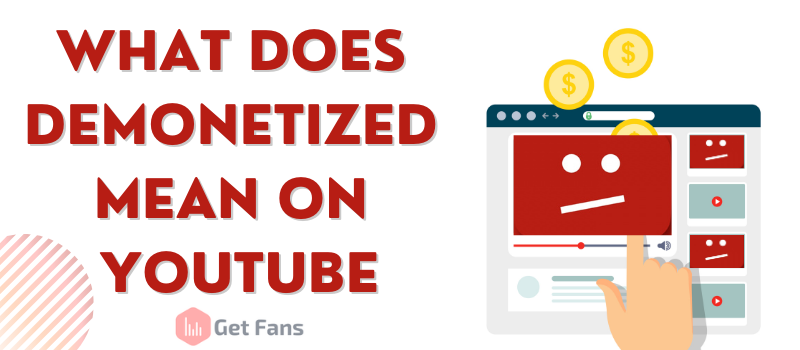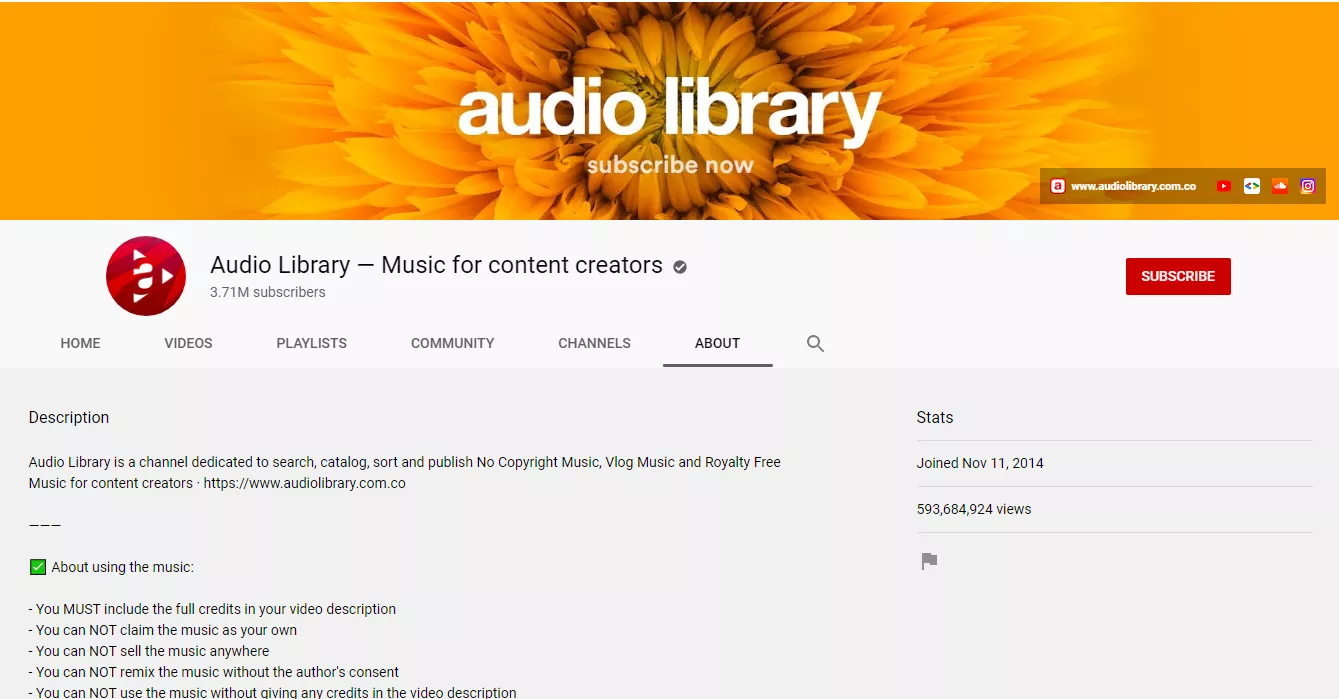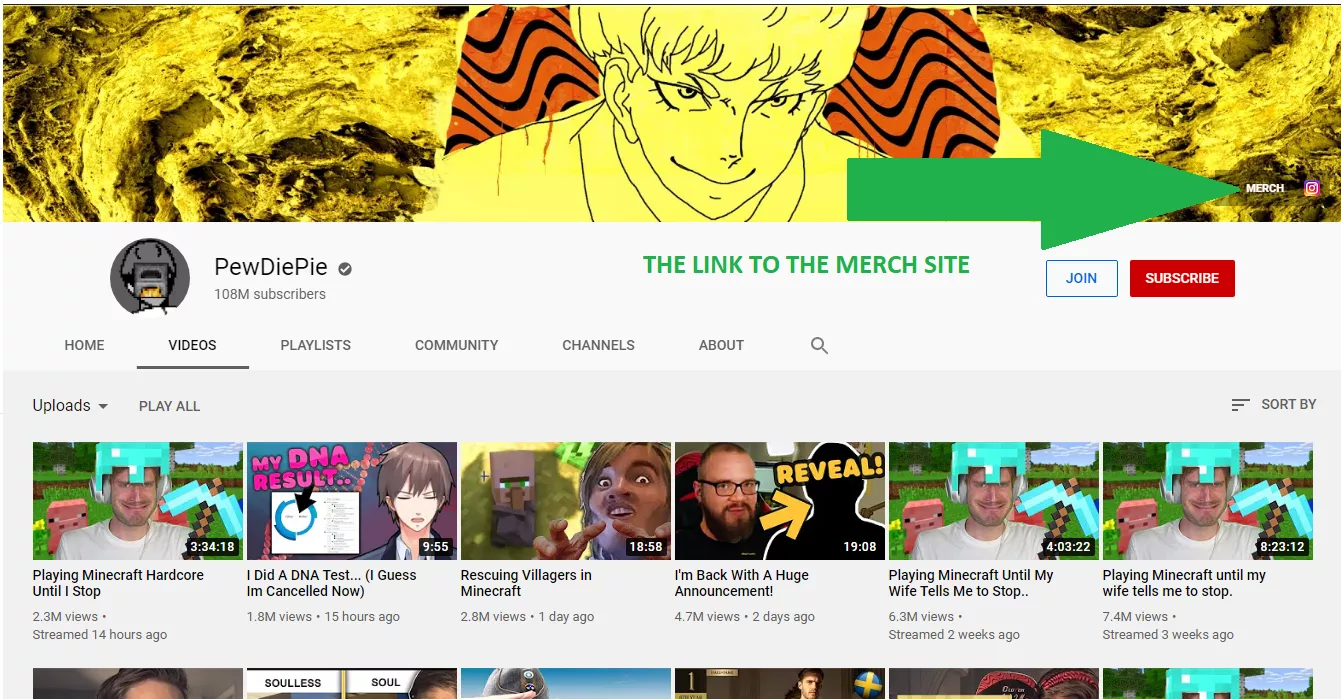



Plenty of YouTubers aim to reach the magical milestones that will allow them to become a part of the YouTube Partner Program, become monetized YouTube channels, and earn money by posting content on YouTube. There are many conditions of how to join YouTube YPP and become monetized; a YPP member needs to uphold even more conditions to maintain its monetized status. Otherwise, they'll face the unfortunate fate of getting demonetized on YouTube.
Here we'll talk in-depth about why do YouTube videos get demonetized and explain all the essential things you need to be aware of and how to continue to enjoy your monetized status on YouTube and avoid the so-called "Adpocalypse."
Demonetization on YouTube happens when YouTube denies posting paid / advertisers ads on your content, effectively lowering your income from the platform. It does not matter if you are fulfilling all the conditions required by the YouTube Partner Program. If YouTube thinks that you've broken the rules, your videos will get the demonetization stamp, and you'll be denied access to paid advertisements.
Thus, getting the demonetized YouTube status will make it significantly challenging to earn a paycheck by posting ads on your content. The rules YouTube has put in place that decide whether a video will get demonetized make it quite restrictive for some creators. Here we'll cover the main YouTube demonetization rules so you'll know everything you need to keep in mind next time you post a video.
The demonetization policies are in place for a while now, but these became more severe back in 2017. After a controversy about the posting of ads on videos promoting terrorism and hate speech, major advertisers threatened to pull their ads campaigns if the platform continues to run them on videos promoting anti-Semitism, hate speech, and terrorism.
It led to implementing stricter rules that would affect many popular YouTube creators who seemed untouchable in terms of ad income. The changes influenced how ads were placed, and YouTube gave the advertisers more freedom to decide where their ads were posted since they are the ones paying for them after all.
As a YouTube creator, you need to be aware of all the little things that could potentially diminish your ad revenue. So, here are the "infamous" YouTube rules that could get your video or channel demonetized -
Any content that has vulgarities and profanities is most likely not going to be allowed to show ads. This is not a rule set in stone, as there are some exceptions. For example, if your YouTube content is for a music video with occasional profanities, you may slip through the restrictions and still get a monetized status. There are levels of profanities, and some are more accepted than others, but we'll talk more about this below.
Many gaming channels on YouTube enjoy quite the subscriber following, and many are among the top earners from ad posts. The YouTube rules on demonetization of gaming channels tell us that channels that feature videos without the publisher's appropriate license will be demonetized. The gaming channels that like to keep their monetized status need to keep using the video software interface to a minimum. The videos that show a user who plays the video game will most probably be demonetized.
Reused content pertains to content created by one person and then repurposed by someone else, without giving it any educational value or providing original commentary. It basically means that your videos will be demonetized if you re-upload someone else's content without providing educational value. Reused content means content from other creators, public domain footage, copyrighted content, and copyrighted music.
If you wish to avoid getting demonetized on YouTube, you should not create clips from your favorite shows without any narrative from your side. You should avoid compiling short videos featuring content from social media sites or creating collections of songs, even if you have permission from the original owners. It is the same for content uploaded by many other creators and promoting content from other creators.
Many news channels that don't follow the advertiser-friendly guidelines on YouTube have succumbed to the fate of YouTube demonetizing their videos. It is significant for YouTube channels that feature news and current events. According to the YouTube monetization policies, this type of content is now eligible for monetization. You can still continue to post your preferred content on YouTube, but you'll not be able to earn money on YouTube from it.
Once you get demonetized, it isn't easy to get rid of the demonetization stamp and get back in YouTube's good graces. So, the smart thing to do is to avoid getting demonetized in the first place. Here is what you need to know so you can avoid getting the YouTube demonetization symbol on your content:
As we said, YouTube demonetization is when your videos are not eligible for advertising income. This means that you've violated the advertiser-friendly content guidelines, and YouTube has revoked your privileges of showing ads on your content.
If you break any of the demonetization rules that we talked about earlier, YouTube's algorithms will catch this, and your videos will be removed from the Account Monetization program.
If you have violated the Advertiser-friendly content guidelines and YouTube channel monetization policies, then YouTube may take one of several actions against you. The first thing is to turn off the ads from your content, which means only for the videos against the rules.
If more than one video violates the monetization policies, then YouTube can suspend you from the YouTube Partner Program. If this behavior continues, then YouTube may suspend or terminate your YouTube channel in a worst-case scenario. If any of these actions happen to you, YouTube will notify you via email, and you can take the appropriate actions.
Every member of the YouTube Partner Program can turn on and off the ads showing option. When the ads option is turned on, you will see the monetization icon next to each video in the YouTube Studio editor. The YouTube demonetization symbol is a $ sign, or its color tells the current status of the video.
How to see if a video is demonetized? Once your video uploads, it gets checked by the YouTube algorithms. The algorithms check your title, thumbnail, and video description for words and graphic content. Based on this check, you get the appropriate color sign.

If you are uncertain about your video, then you can upload it as unlisted. After it gets checked over by the YouTube algorithms, it will stabilize and change its classification, usually within 48 hours.
If you have posted a video and it has gotten a yellow $ icon, then you can request a human review of your video, which we'll cover below.
Getting rid of demonetization on your YouTube videos can be difficult, but not impossible. Since a machine determines the monetization status, it can make mistakes. But YouTube has a contingency for such cases, and each user who feels their videos deserve monetization can appeal and request a human review.
To do this, you need to log into YouTube Studio and locate the video in question. You'll see the video's current status under the restrictions column and click on the Request Review option. This option will be available only if you have grounds for appealing and is available only once; after you get the reviewers' decision, you cannot appeal again.
The review process of a single video usually takes about one hour, and if everything gets resolved in your favor, you can go on as usual and promote your content to rake up the views and get those ad clicks.
The great thing about this is that the monetization/demonetization status of a video does not affect the Recommendations and Search & Discovery systems. It means that you can still get good exposure on your channel and videos, even if it will not earn you any income. However, in the case of having inappropriate content in your video like violence, racial intolerance themes, or profanities, it will not be recommended due to the inappropriate content.
Well, you have tried to be a good guy and follow the rules but have still ended with your videos getting demonetized. Do not despair; not all is lost, as there are many other ways to make money on YouTube. Here is a list of the most popular and most effective ways to earn money on YouTube even if you get demonetized:
if you have a good following on YouTube, you can create a branded line of products you sell to your subscribers. Many popular YouTubers already do this and sell t-shirts and other branded products, bringing a consistent income to their channel. An example is the famous YouTuber, PewDiePie; he has a complete clothing line branded with his logo and exciting graphics.
it has become a legit way of getting contributions to your YouTube channel, and you can earn money with channel memberships, as many YouTubers have a Patreon account where people donate money. Asking for Patreon donations from viewers is how many YouTube Makers can afford to create large projects. Alternatives to Patreon are Indiegogo, Podia, SubscribeStar, Liberapay, and Kickstarter, although the latter ones are not as used by YouTubers.
many YouTubers already do this and feature products from companies in their videos. The product placement marketing pays well, especially for channels with a good subscriber base and consistent high views.
by opting to promote third-party products and services, you can earn a commission for each sale you generate. Affiliate marketing is a great and common monetization way YouTubers around the world are using to boost their channel income.



